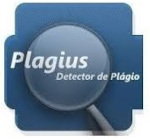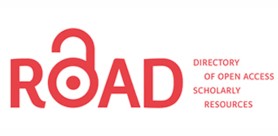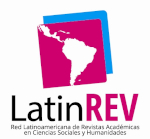NAIVE AND CRITICAL EVALUATORS: A Study on Reviewer Profiles in Scientific Journals in the Field of Tourism
DOI:
https://doi.org/10.47180/omij.v4i2.210Keywords:
scientific article, , technical and semiotic dimensions, prognostic and diagnostic functionsAbstract
The objective was to reflect on the contributions of scientific journal reviewers to the development of research in a multidisciplinary area. Our methodology follows transformational dialectic hermeneutics. We built an interpretative action that prioritizes analogies and contradictions contained in our object: evaluation processes of two articles patented in two Brazilian journals that have similar positions in the classification system of the CAPES. We contributed with reflections on the characteristics of the scientific article in the area of tourism and on the profile of the evaluator. The critic manages to immerse himself in the specificities of the text, developing a prognostic and diagnostic function. The naive evaluator cannot detach himself from his theoretical-methodological choices and focuses his opinion on the search for the authors' error, generally pointing to complementary aspects of the scientific text. We consider that the scientific journal evaluator contributes to the development of research when, in a critical way, he/she understands the numerous possibilities of theoretical-methodological constructions of the discipline and dialogue with the authors from the technical and semiotic dimensions contained in the learned text. Thus, it identifies its potentialities and applicability, and, if relevant, offers ways for its publication.
Downloads
References
COSTA, M. B. F. & ALVES, M. L. B. Acoplamento estrutural turístico: um estudo sobre a estrutura estética de publicações em ambiências digitais a partir da semiótica peirceana. Revista Turismo Em Análise, 32(2), 2021. p. 205-226. https://doi.org/10.11606/issn.1984-4867.v32i2 p. 205-226 DOI: https://doi.org/10.11606/issn.1984-4867.v32i2p205-226
________________. Memórias de Residentes a Partir da Fanpage da Prefeitura do Salvador-BA: reflexão sobre a gestão da comunicação turística. Revista Turismo em Análise, 30(3), 2019. p-461-479. https://doi.org/10.11606/issn.1984-4867.v30i3p461-479 DOI: https://doi.org/10.11606/issn.1984-4867.v30i3p461-479
__________________. Epistemologia do turismo: uma contribuição da semiótica de Peirce. Anais do Seminário da Anptur, Universidade de São Paulo, São Paulo, 2016. Disponível em: https://www.anptur.org.br/anais/anais/files/13/558.pdf /. Acesso em 04 de março de 2022.
BRASIL. CONSTITUIÇÃO. Constituição da República Federativa do Brasil. Brasília, DF: Senado Federal: Centro Gráfico, 1988.
DENCKER, A. de F M. Pesquisa e interdisciplinaridade no ensino superior: uma experiência no curso de Turismo. São Paulo: Aleph, 2002.
ECO. H. Apocalípticos e integrados. 6 Ed. São Paulo: Perspectiva, 2004.
FOUCAULT, M. A ordem do discurso. 15 Ed. São Paulo: Loyola, 2007.
__________ . A verdade e as formas jurídicas. 4 Ed. Rio de Janeiro: Nau, 2003.
GAXIOLA, N. C. Algunas consideraciones dialécticas y hermeneutizantes sobre la epistemología y la importancia de la tradición em el pensamiento turístico. Turismo em Análise, 20(3), 2009, 409-426. Disponível em https://www.revistas.usp.br/rta/article/view/14193/ Acesso em 02 de fevereiro de 2022. DOI: https://doi.org/10.11606/issn.1984-4867.v20i3p409-426
HALLAL, D. R., MULLER, D., GARCIA, T. E. M. & RAMOS, M. da G. G. O contexto de criação dos cursos de bacharelado em turismo no Brasil. X Coloquio Internacional sobre Gestión Universitaria em América del Sul. Mar del Plata, 8, 9 y 10 de Diciembre, 2010. Access in: 28/12/2021. In: https://repositorio.ufsc.br/handle/123456789/97077
HAMZE, A. Avaliação escolar. Canal do Educador, 2007. Disponível em https://educador.brasilescola.uol.com.br/trabalho-docente/avaliacao-escolar.htm/, Acesso em 12 de março de 2022.
JAPIASSU, H. Introdução ao pensamento epistemológico. 6 Ed. Rio de Janeiro: Francisco Alves, 1991.
LIPOVETSKY, G. & SERROY, J. A estetização do mundo. Viver na era do capitalismo artista. São Paulo: Companhia das Letras, 2015.
LYRA FILHO, R. O que é Direito. São Paulo: Nova Cultural/Brasiliense, 1985.
MARCONI, M. de A.; LAKATOS, E. M. Metodologia do Trabalho Científico. 7. ed. rev. e ampl. São Paulo: Atlas, 2013.
MOESCH, M. A produção do saber turístico. Contexto: São Paulo, 2000.
PANOSSO NETTO, A. O que é turismo. São Paulo: Brasiliense, 2010.
PANOSSO NETTO, A. & NECHAR, M. C. Epistemologia do Turismo: escolas teóricas e propostas críticas. Revista Brasileira de Pesquisa em Turismo. São Paulo, 8(1), jan./mar, 2014 pp. 120-144. DOI: https://doi.org/10.7784/rbtur.v8i1.719
PEIRCE, C. S. Semiótica. 3 Ed. São Paulo: Perspectiva, 2005.
PORTAL DO ARTIGO CIENTÍFICO. O que é um artigo científico. Disponível em https://artigocientifico.com.br/ Acesso em 13 de março de 2022.
SANTOS, J. F. Análise da Produção Acadêmica em Turismo. Dissertação de mestrado. Programa de Pós-Graduação em Turismo, da Escola de Artes, Ciências e Humanidades da Universidade de São Paulo, 2018.
SCHOLL, A. P. O conceito de translinguagem e suas implicações para os estudos sobre bilinguismo e multilinguismo. Revista da ABRALIN, v. 19, n. 2, p. 1-5, 27 ago, 2020. IN: https://revista.abralin.org/index.php/abralin/article/view/1641/ Acesso em 20 de março de 2022. DOI: https://doi.org/10.25189/rabralin.v19i2.1641
VALLS, Á. L. M. O que é ética. São Paulo: Brasiliense, 2005.
VOLLI, U. Manual de semiótica. São Paulo: Edições Loyola, 2007.
WIKIPEDIA. A ENCICLOPÉDIA LIVRE. Artigo científico, 2021. Disponível em https://pt.wikipedia.org/wiki/Artigo_cient%C3%ADfico/. Acesso em 13 de março de 2022.
Downloads
Published
How to Cite
Issue
Section
License
Copyright (c) 2023 Open Minds International Journal

This work is licensed under a Creative Commons Attribution-NonCommercial-NoDerivatives 4.0 International License.
The authors declare that any work submitted, if accepted, will not be published elsewhere, in English or in any other language, and even electronically, unless it expressly mentions that the work was originally published in the Journal.













